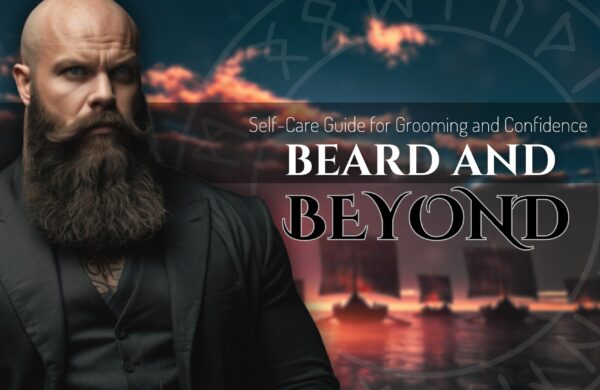Introduction
In today’s fast-paced world, men often shoulder the heavy burden of societal expectations, family responsibilities, and professional pressures. Yet, conversations about emotional well-being among men remain scarce. Emotional self-care, once stigmatized as a sign of weakness, is now recognized as a cornerstone of mental health and overall well-being. This guide is here to change the narrative, providing men with practical tools, actionable advice, and the motivation to prioritize their emotional health.
This comprehensive guide will explore why emotional self-care is essential for men, identify common stressors, and equip readers with strategies to build resilience and maintain long-term emotional wellness.
Why Emotional Self-Care is Crucial for Men
Breaking the Stigma Around Men’s Mental Health
For decades, traditional masculinity has often been associated with emotional suppression. Phrases like “man up” or “men don’t cry” have perpetuated the idea that expressing vulnerability is unmanly. However, research shows that men who practice emotional self-care experience better relationships, improved physical health, and greater career satisfaction.
Key Statistics:
- According to the CDC, men are four times more likely to die by suicide than women.
- Over 75% of men report experiencing significant stress but do not seek help.
The Cost of Ignoring Emotional Health
Ignoring emotional well-being can lead to chronic stress, burnout, and strained relationships. It’s crucial to recognize that addressing emotional needs is not a sign of weakness but a testament to strength.
Identifying Emotional Stressors in Everyday Life
Common Stressors for Men
- Workplace Pressure: Deadlines, career advancement, and financial security.
- Relationship Challenges: Maintaining healthy communication with partners, friends, and family.
- Health Concerns: Physical ailments or concerns about aging.
- Societal Expectations: Balancing traditional roles with modern dynamics.
Recognizing Early Warning Signs
- Chronic fatigue
- Increased irritability
- Difficulty concentrating
- Physical symptoms like headaches or digestive issues
Actionable Tip: Keep a stress journal to identify patterns and triggers in your daily life.
Building Emotional Awareness: Tools and Techniques
Practicing Self-Reflection
Self-awareness is the foundation of emotional self-care. Take 10 minutes daily to reflect on your emotions and reactions.
Tool: Use apps like Moodfit or Reflectly to track and analyze your emotional patterns.
Developing Emotional Vocabulary
Men often struggle to articulate their emotions due to a lack of practice. Expanding your emotional vocabulary can help:
- Replace “I’m fine” with specifics like “I feel overwhelmed” or “I feel proud.”
Mind-Body Connection
Recognize how your body responds to emotions. For example, tight shoulders may indicate stress, while a racing heart could signal anxiety.
Mindfulness and Meditation for Emotional Stability
The Science of Mindfulness
Mindfulness helps you stay present and reduces overthinking. Studies show that mindfulness practices can lower cortisol levels and improve emotional regulation.
Beginner-Friendly Meditation Practices
- Box Breathing: Inhale for 4 seconds, hold for 4 seconds, exhale for 4 seconds, and repeat.
- Guided Meditations: Use apps like Headspace or Calm for easy-to-follow sessions.
Incorporating Mindfulness Into Daily Life
- Start your day with 5 minutes of deep breathing.
- Practice gratitude journaling to focus on positive aspects of life.
Backlink: Learn more about mindfulness techniques on Greater Good Science Center.
The Role of Physical Health in Emotional Well-Being
Exercise as a Mood Booster
Regular physical activity releases endorphins, often referred to as “happy hormones.” Activities like running, swimming, or even brisk walking can significantly improve mood.
Key Tip: Aim for at least 150 minutes of moderate exercise per week.
Nutrition for Emotional Health
- Increase omega-3 fatty acids by eating fatty fish like salmon or walnuts.
- Reduce sugar and caffeine, which can exacerbate anxiety.
Sleep and Emotional Resilience
Quality sleep is essential for processing emotions. Develop a bedtime routine that includes:
- Avoiding screens an hour before bed
- Drinking calming herbal teas like chamomile
The Importance of Strong Social Connections
The Power of Brotherhood
Strong social bonds can buffer stress and enhance emotional resilience. Spend quality time with friends, family, or community groups.
Actionable Tip: Join interest-based meetups or support groups to expand your network.
Effective Communication in Relationships
- Practice active listening by giving full attention to the speaker.
- Express gratitude regularly to strengthen bonds.
Backlink: Explore relationship-building techniques at Psychology Today.
Creating Healthy Boundaries
Why Boundaries Matter
Setting boundaries protects your mental and emotional energy, preventing burnout and resentment.
How to Set Boundaries
- Identify your limits in work, relationships, and personal time.
- Communicate your boundaries clearly and assertively.
Examples of Healthy Boundaries
- Saying no to after-hours work emails.
- Allocating one evening a week for self-care activities.
Journaling and Self-Reflection for Emotional Growth
Benefits of Journaling
Journaling helps you process emotions, identify patterns, and clarify thoughts. Research suggests it can reduce anxiety and boost problem-solving skills.
Prompts to Get Started
- “What am I grateful for today?”
- “What challenges did I face, and how did I overcome them?”
Digital Tools for Journaling
Use apps like Day One or Journey to make journaling easy and accessible.
How Therapy and Professional Help Can Support Emotional Care
Debunking Myths About Therapy
Many men avoid therapy due to misconceptions. Therapy is not just for crises; it’s a tool for growth and self-improvement.
Finding the Right Therapist
- Look for professionals specializing in men’s health or specific issues like stress management.
- Platforms like BetterHelp or Talkspace make therapy accessible online.
Sustaining Emotional Wellness Long-Term
Creating a Routine
Consistency is key. Incorporate self-care practices into your daily routine to build habits that last.
Adapting Over Time
Life circumstances change, and so will your self-care needs. Periodically reassess your strategies and make adjustments as needed.
Conclusion
Emotional self-care is not a luxury; it’s a necessity. By prioritizing your emotional well-being, you’re not only enhancing your own life but also positively impacting those around you. Take the first step today and commit to one small change that will contribute to your emotional health. Remember, self-care is an ongoing journey, and every effort you make brings you closer to a healthier, more balanced life.



